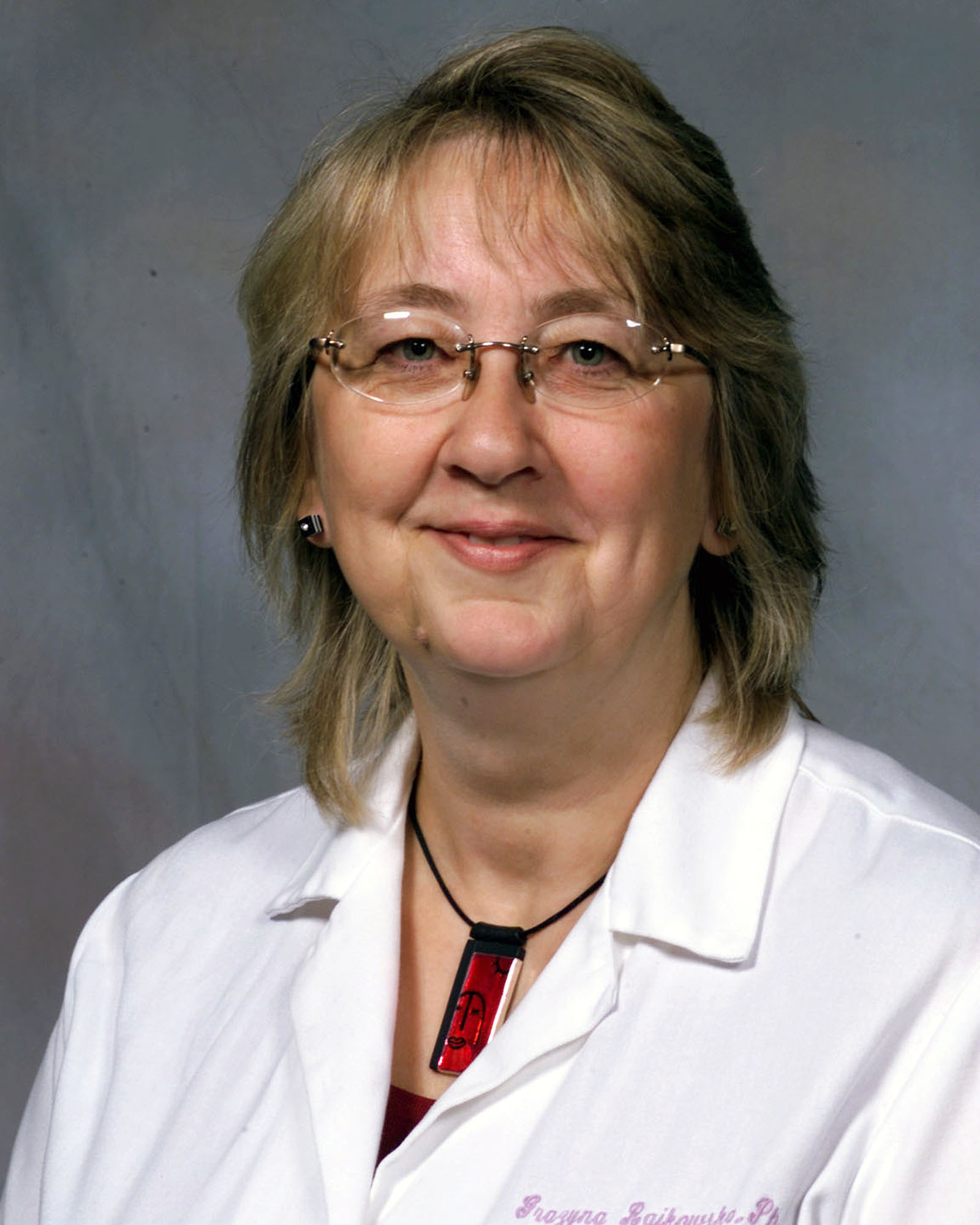Spotlight | Dr. Grazyna Rajowska

After 27 years of service, Grazyna Rajkowska, Ph.D., Professor of Psychiatry and Human Behavior, retired on July 31, 2021. In 1994, Dr. Rajkowska was appointed Assistant Professor at UMMC, rising through the ranks to Professor, with tenure, in 2002. A native of Warsaw, Poland, Dr. Rajkowska, earned her B.S. degree from the University of St. Petersburg, in the former Soviet Union. She graduated with distinction, being awarded the Red Diploma as the top student at the university. Dr. Rajkowska went on to earn her Ph.D. in Neuroscience and serve as a Postdoctoral Associate at the Polish Academy of Science. While in Warsaw, because of her masterful command of the Russian language, she was often requested to serve as a translator at high-level Warsaw Pact meetings of the Soviet Union with its satellite countries. Grazyna passed along vital information to the underground Solidarity Trade Union in its struggle to be officially recognized and to advocate for democracy rather than communism. In 1989, Dr. Rajkowska began a postdoctoral position in the laboratory of Patricia Goldman-Rakic, a leading researcher in biological psychiatry at Yale University. While at Yale University, she authored the first studies to identify unique cell pathology in schizophrenia, bipolar disorder and Huntington’s disease. Grazyna’s work revealed that these three diseases are characterized by unique morphological pathology despite having many similar cognitive symptoms. After coming to UMMC, her groundbreaking 1999 publication in Biological Psychiatry, using her own cytoarchitectonic map and the pioneering technique of 3-dimensional cell counting, was the first to establish glial cell pathology and decreased cortical thickness in postmortem brain tissue of subjects with major depressive disorder. More than 1700 citations of this paper attest to its lasting impact on the field. In 107 peer-reviewed manuscripts and 8 book chapters, Grazyna has identified unique pathology in neurons, glial cell types, and vasculature in the human brain in psychiatric disorders. She has given 59 invited presentations at national or international scientific meetings or universities. Grazyna was funded for 22 years serving as principal investigator on 13 grants awarded by the National Institutes of Health and two research foundations. She has taught medical students, psychiatry residents and graduate students in the Program in Neuroscience and mentored research projects for junior faculty, international masters students, and medical and undergraduate students.
It was a pleasure to get to work along side such an innovated and inspiring woman in neuroscience. Everyone at UMMC and the Neuro Institute thanks you for your years of service to neuroscience, education, research and development.


